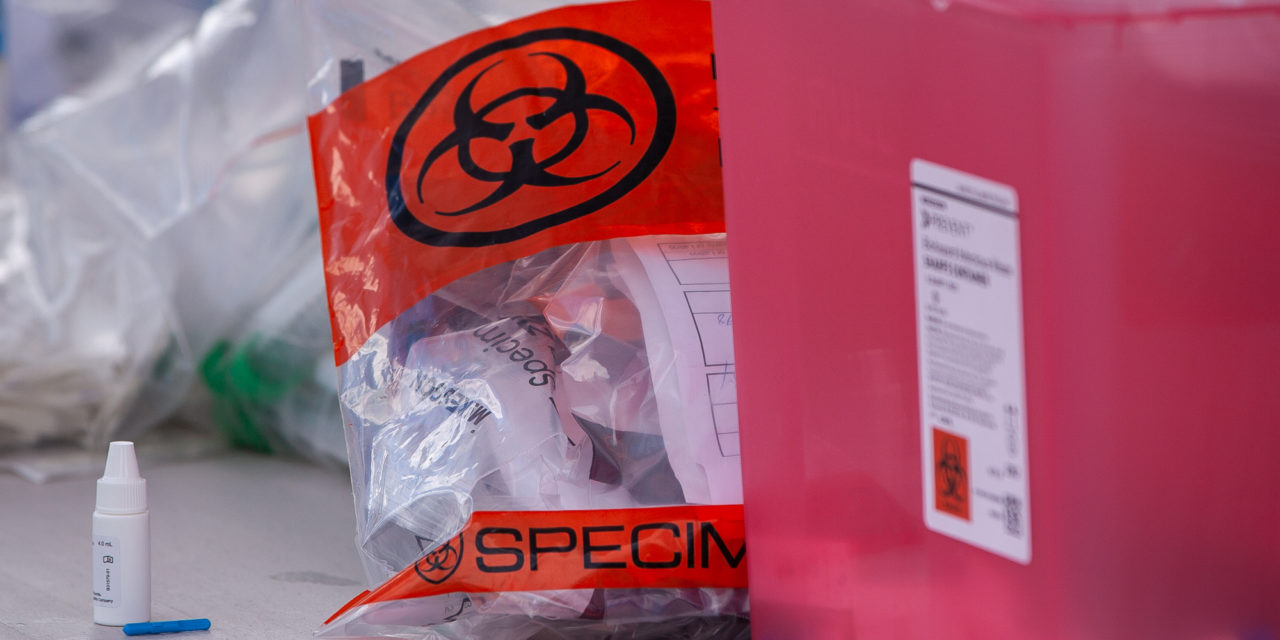A new variant of COVID-19 in the United Kingdom and Europe has led to concern over renewed spread of the virus. Research conducted by UNC, however, found the virus should be treated by the vaccines being distributed worldwide and does not cause more illness.
A new study published by UNC and University of Wisconsin epidemiologists, microbiologists and immunologists examines the potential effects of the coronavirus’ D614G variant. A mutation of the “ancestral form” known as SARS-CoV-2, this variant spreads more quickly than the original COVID-19. According to the research published in Science magazine, patients with this strain carry the virus more in their upper respiratory tract and were reported to show increased infectivity. The report says D614G has now become the most prevalent version of COVID-19 in the world because of how effectively the mutation causes transmission.
“The D614G virus out-competes and outgrows the ancestral strain by about 10-fold and replicates extremely efficiently in primary nasal epithelial cells, which are a potentially important site for person-to-person transmission,” said Ralph Baric, professor of epidemiology, microbiology and immunology at UNC, in a university article.
Baric’s team of researchers recreated this COVID-19 mutation and partnered with Wisconsin virologists to test it for the study. The Wisconsin research team of Yoshihiro Kawaoka and Peter Halfmann used hamsters to perform replication and airborne transmission studies with both the original virus and the variant.
Ultimately, the research concludes while the D614G strain does infect people more quickly, its ability to spread makes it more susceptible to treatment. The study says the mutation causes the virus’ crown-like spikes to develop flaps, which allows it to infect cells more quickly. That flap, however, makes it easier for antibodies included in the vaccine treatments to attack and enter individual virus particles. The research also suggests this variant would also make symptoms or side-effects of the virus less severe.
Baric told UNC as mutations continue, though, more research and data must be conducted on how the D614G variant actually affects humans.
“SARS-CoV-2 is an entirely new human pathogen and its evolution in human populations is hard to predict,” he said. “To maximally protect public health, we must continue to track and understand the consequences of these new mutations on disease severity, transmission, host range and vulnerability to vaccine-induced immunity.”
More information on the UNC and Wisconsin study about the D614G strain of COVID-19 can be found on the university’s communications website.
Chapelboro.com does not charge subscription fees. You can support local journalism and our mission to serve the community. Contribute today – every single dollar matters.
Related Stories
‹
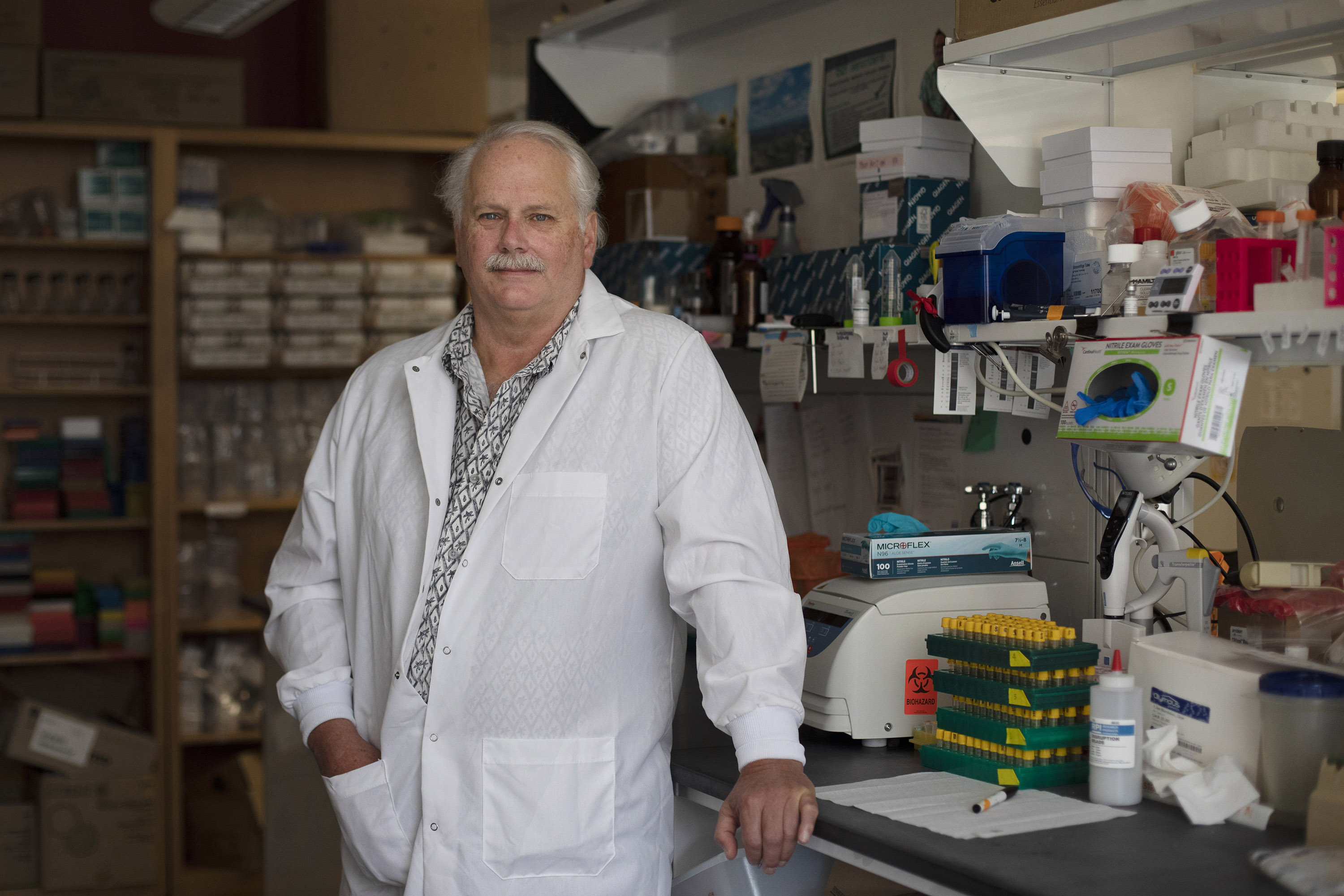
Ralph Baric, 3 Other UNC Researchers Chosen for National Academy of SciencesFour UNC researchers, including leading coronavirus expert Ralph Baric, recently earned one of the most prestigious honors for scientists and engineers in the United States. The National Academy of Sciences inducted Baric, as well as Kerry Bloom, Joseph Kieber and Edward Salmon, into its ranks on April 26, announcing the quartet as part of an […]

UNC Receives Millions in State Funding to Continue COVID-19 ResearchUNC will allocate $29 million of state funding for advancing COVID-19 research, testing and the development of a vaccine. The university will receive the funding as part of the 2020 COVID-19 Recovery Act passed by the North Carolina General Assembly on Saturday and signed by Governor Roy Cooper on Monday. According to the legislation, the […]
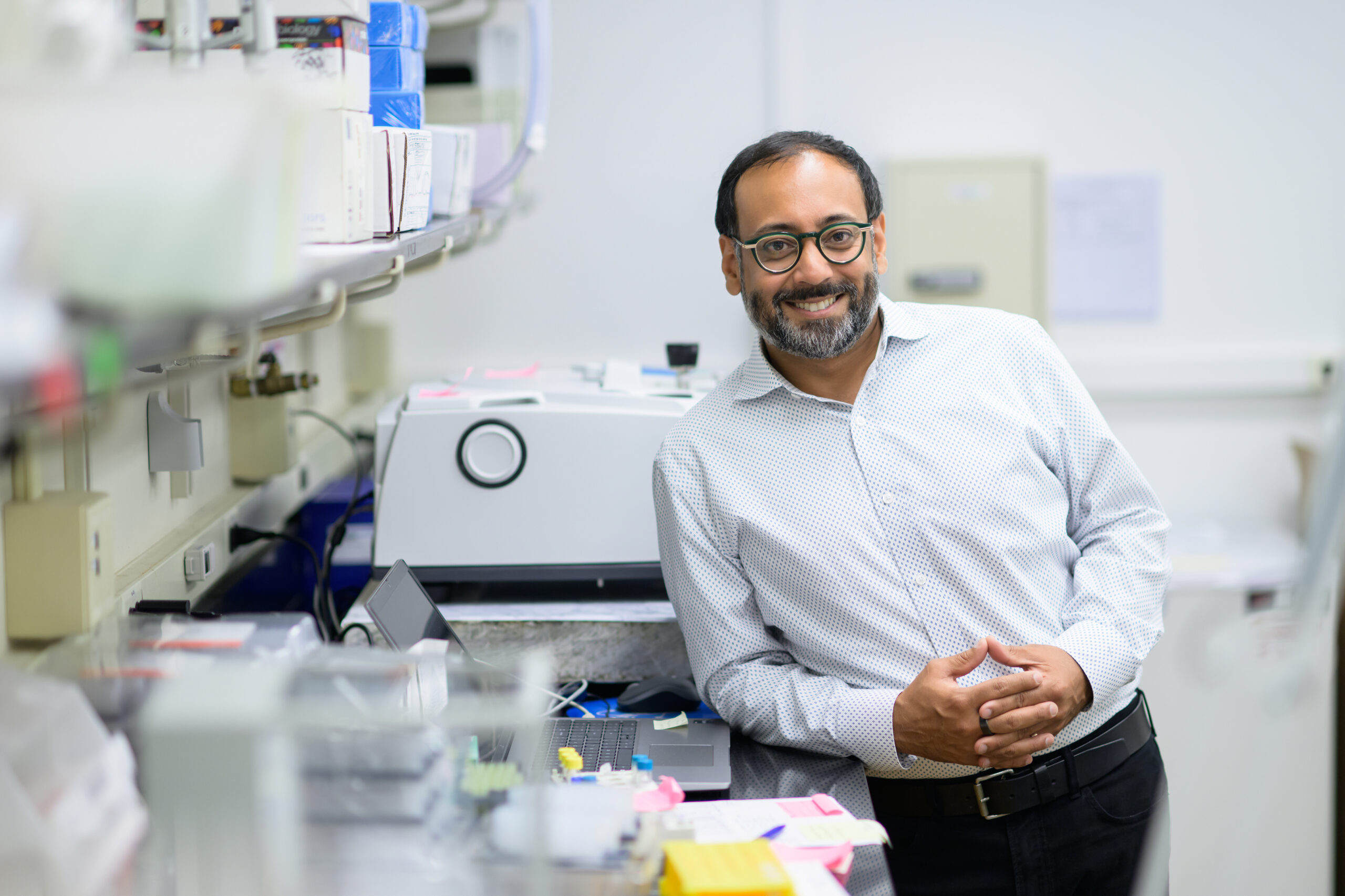
UNC Researcher Earns MacArthur 'Genius' Grant to Support Work Preventing Drug OverdosesNabarun Dasgupta, an epidemiologist and researcher with UNC’s Gillings School of Public Health, is the latest Chapel Hill faculty member to earn a MacArthur Foundation fellowship. The private philanthropic organization announced its 2025 class of MacArthur Fellows on Wednesday, with Dasgupta among 22 people selected for the five-year grants, which come with no conditions. He […]
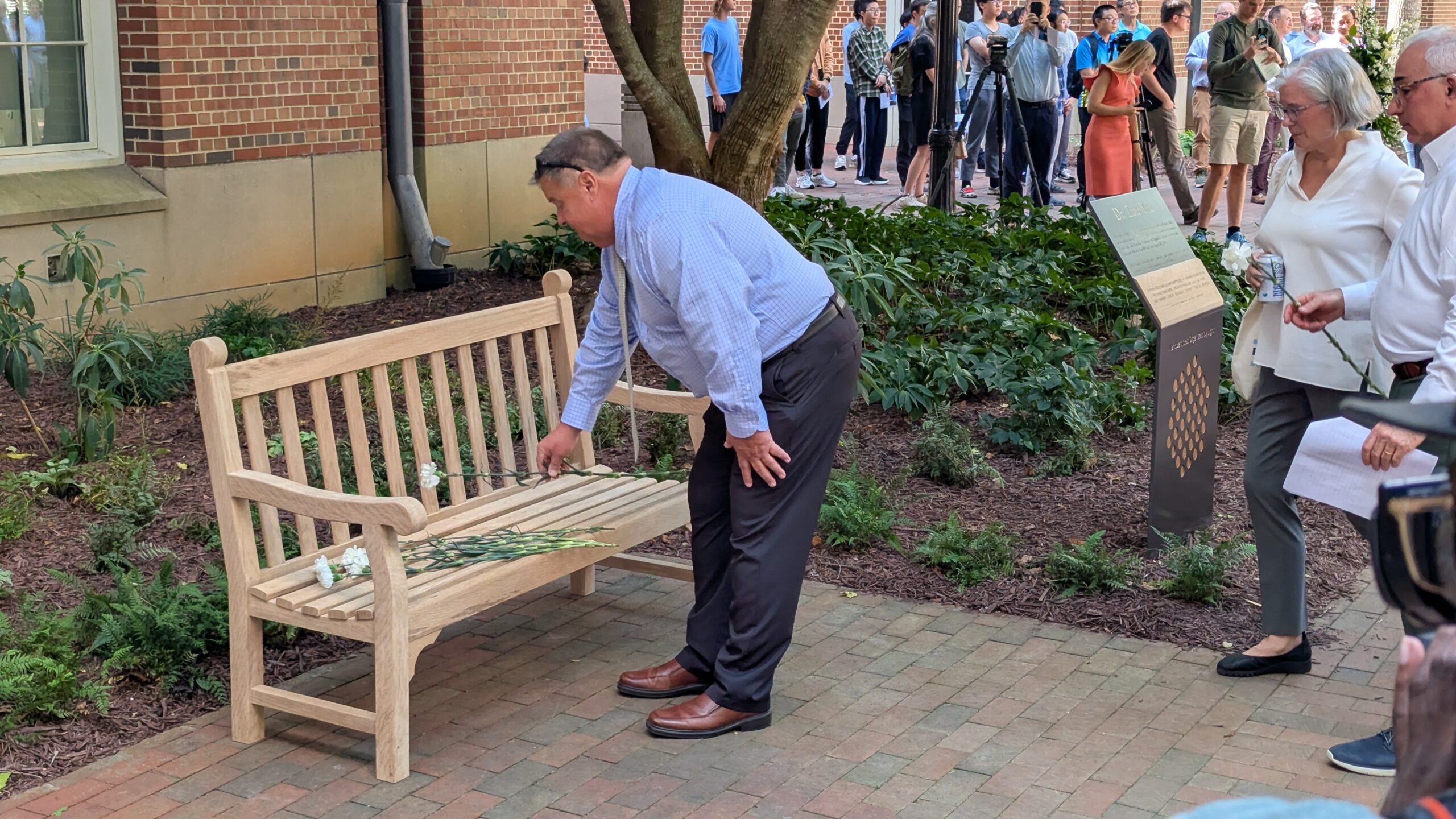
UNC Marks 2 Years Since Zijie Yan's Fatal Shooting With Memorial Bench Dedication and LectureUNC leaders and the applied physical sciences department held a memorial event Thursday for the two-year anniversary of Zijie Yan's death.

UNC Researcher: Overhaul of CDC Vaccine Advisory Group Adds to 'Incredibly Stressful' Health EnvironmentU.S. Health and Human Services Secretary Robert Kennedy Jr. announced one week ago he would shake up one of the key volunteer groups that advises the Centers for Disease Control and federal government on how to use vaccines. All 17 members of the Advisory Committee on Immunization Practices (ACIP), who were approved by President Joe […]

RFK Jr. Ousts Entire CDC Vaccine Advisory CommitteeOn Monday, U.S. Health Secretary Robert F. Kennedy Jr. removed every member of a scientific advisory committee on how to use vaccines.
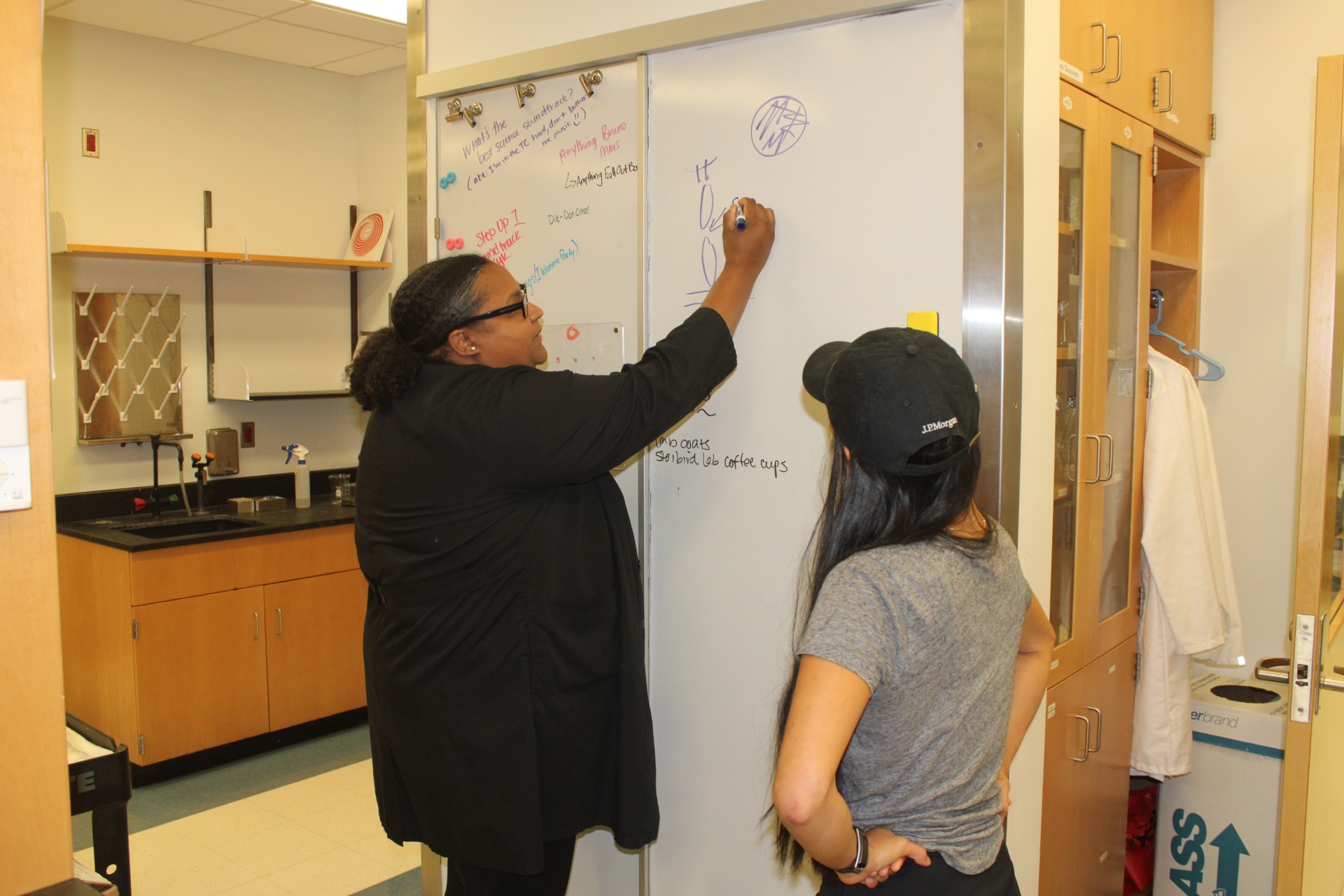
UNC Researchers Warn About Effects of Federal Funding Cuts on Cancer Discoveries, TreatmentsThreats of federal funding cuts are already felt within research circles at UNC, including the labs of some leading cancer research.

UNC Chancellor Interview: Monitoring Executive Orders, Expanding Enrollment, Balancing Academics and AthleticsUNC Chancellor Lee Roberts joined 97.9 The Hill's Aaron Keck on Thursday, Jan. 30 for a wide-ranging interview checking in as the university's spring semester got started.

Orange County Leaders React to Threat of Funding Freeze, Impact of Executive Orders from Trump AdministrationOrange County's elected leaders and UNC's chancellor shared their reactions to the threat of halted federal funding by President Trump's administration.

UNC Trustees Approve Designs for New Research Building, Advance Planning Efforts for New Dorms and Student GymThe Translational Research Building and Bernard Street Chiller Plant designs earned unanimous approval by the UNC trustees Thursday morning, while the board approved $13 million in advanced planning spending for two other major projects.
›

